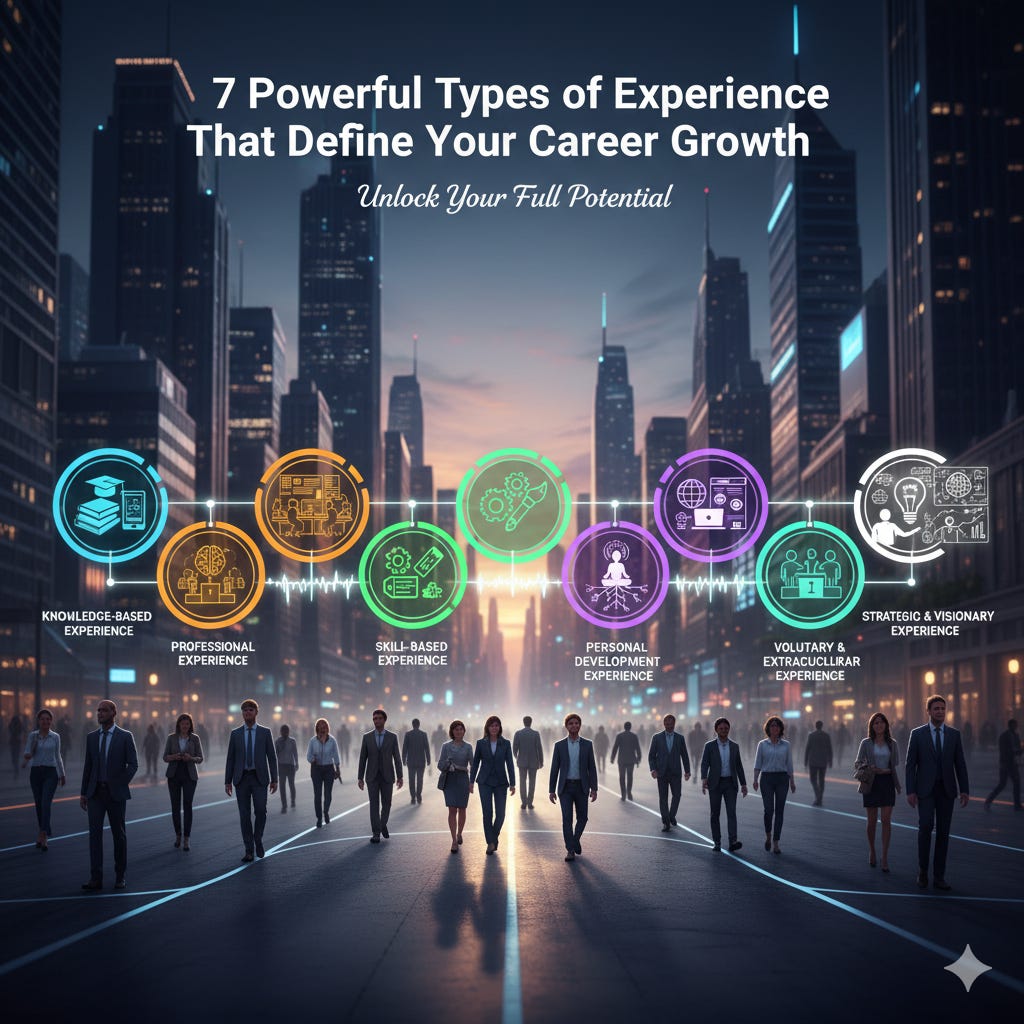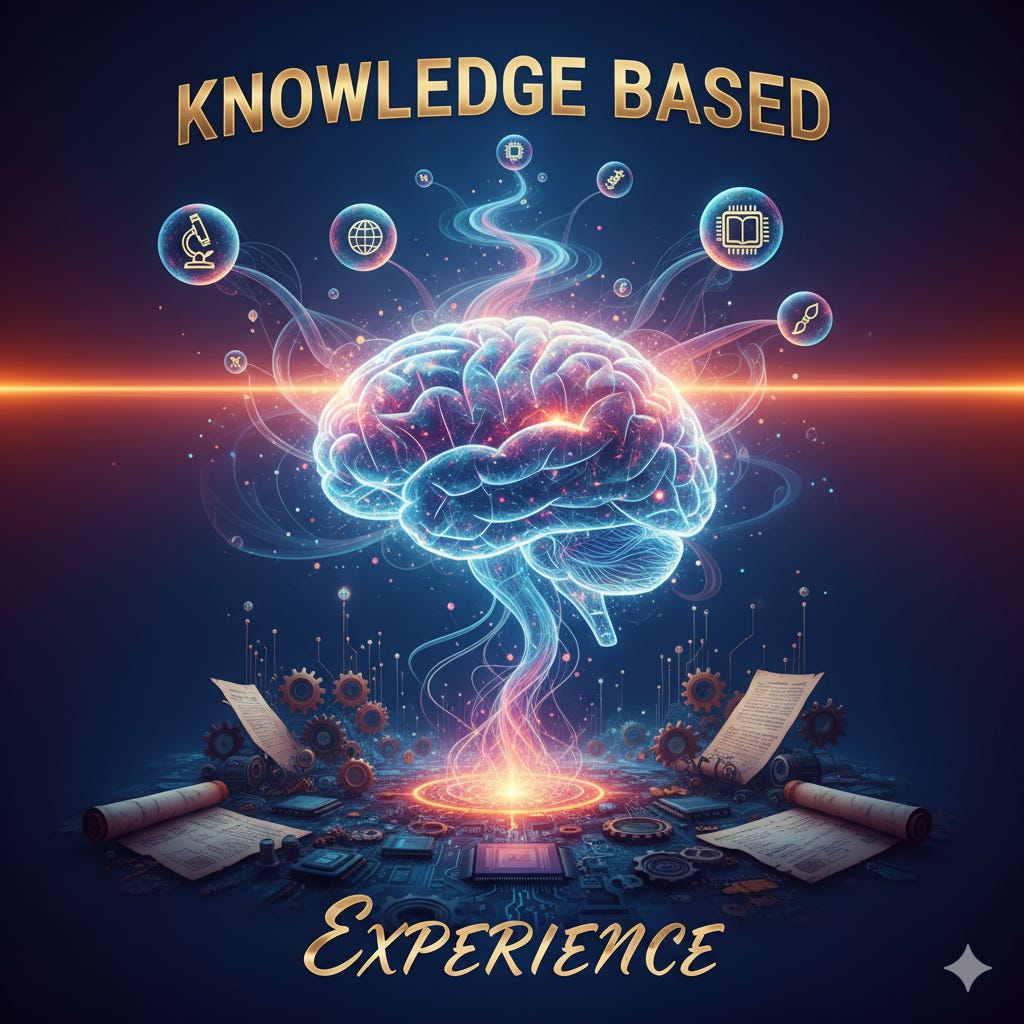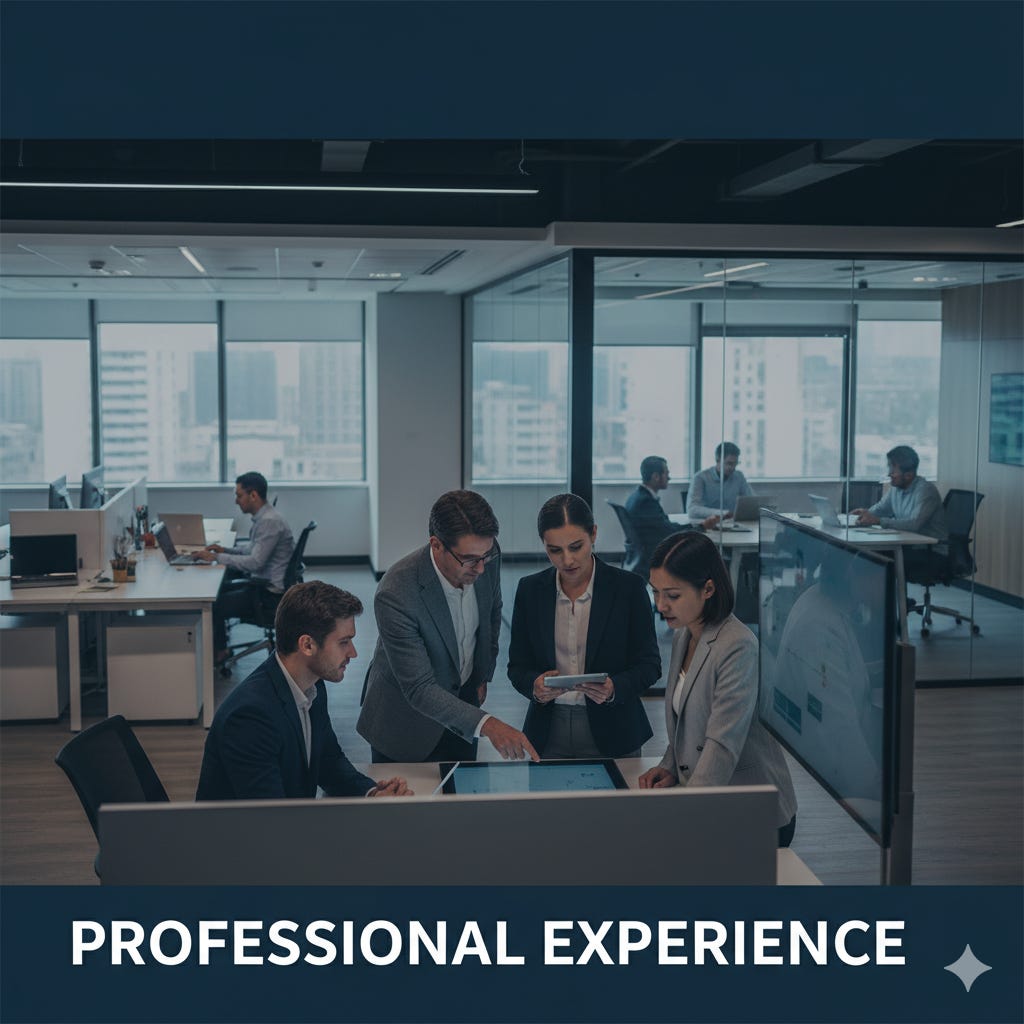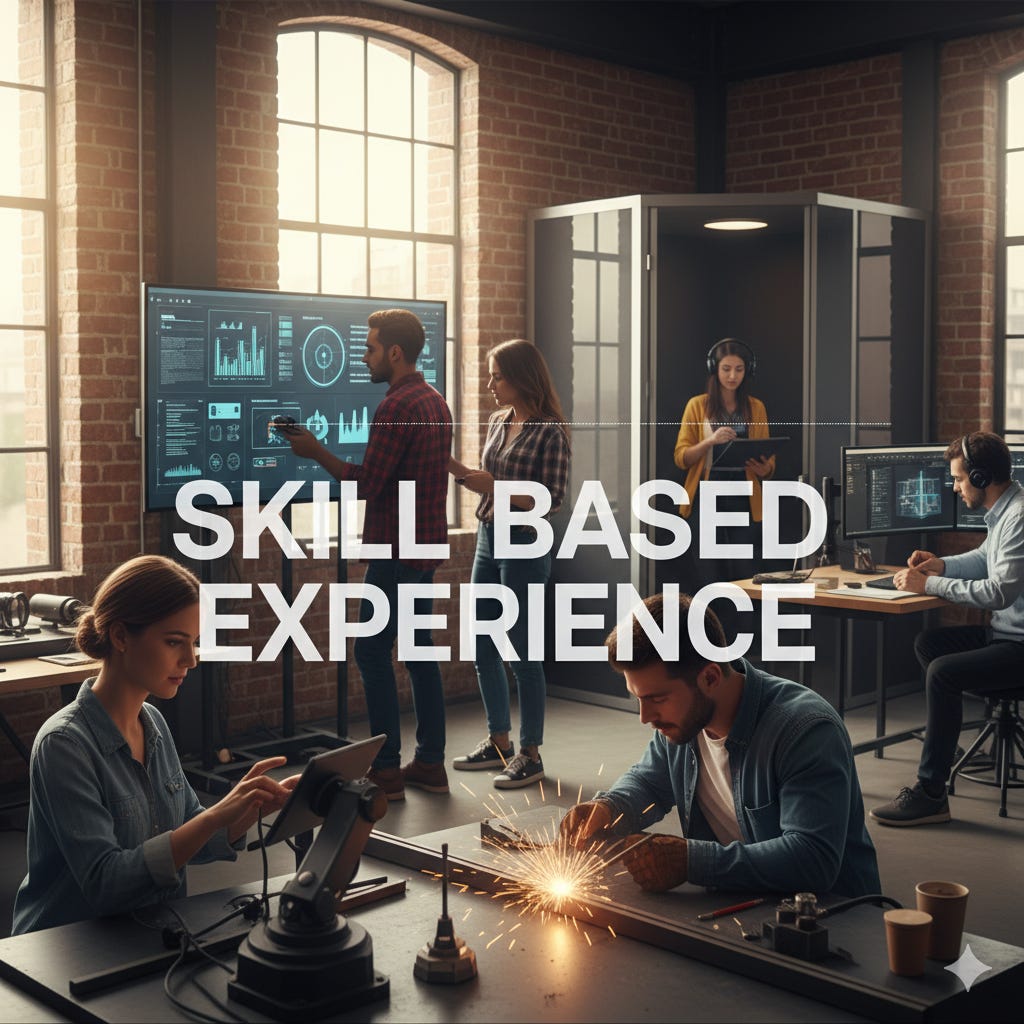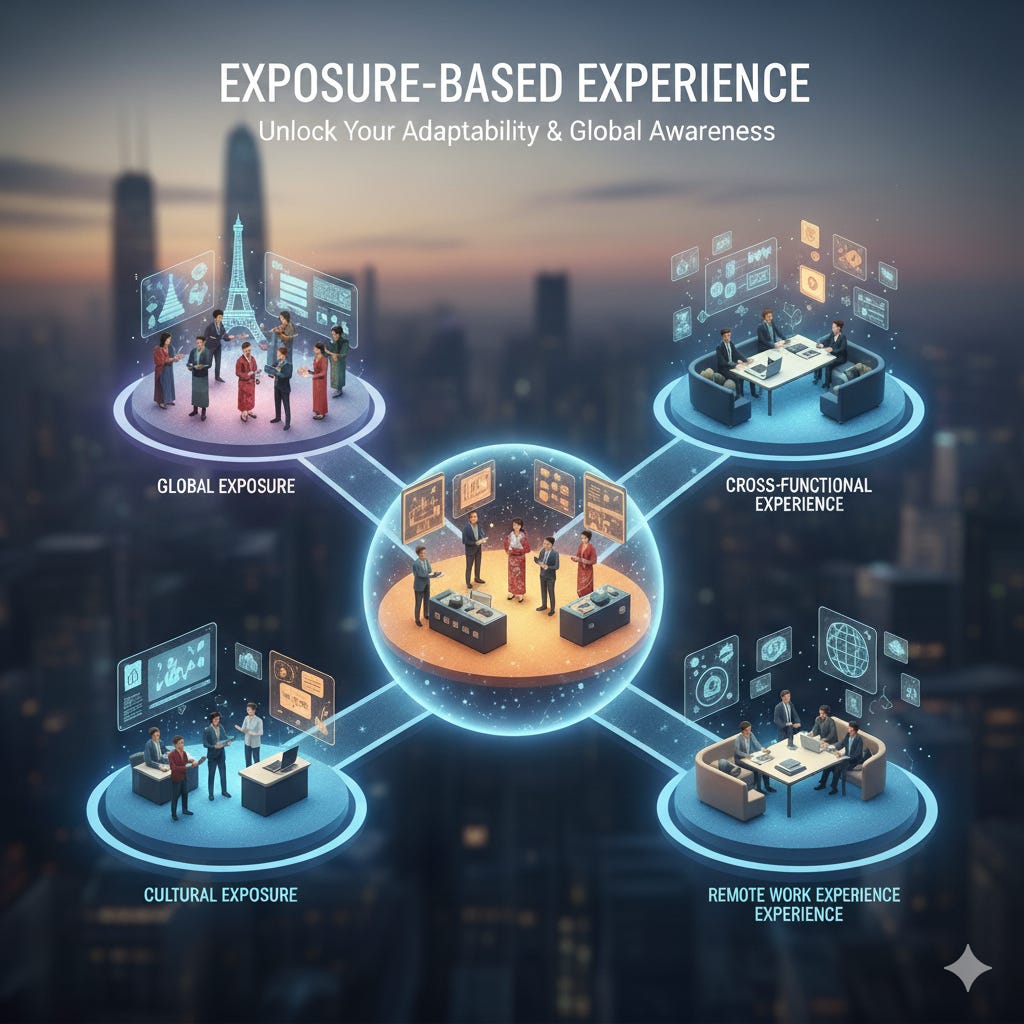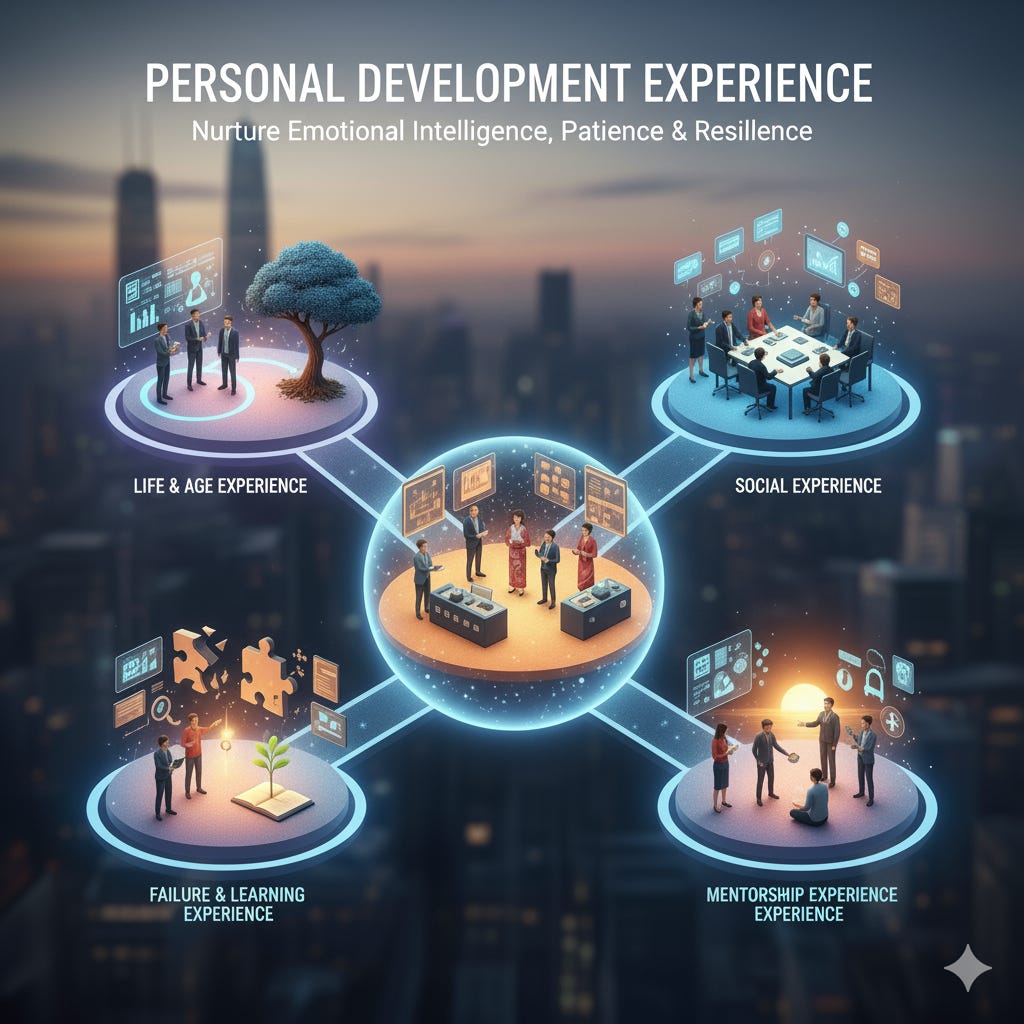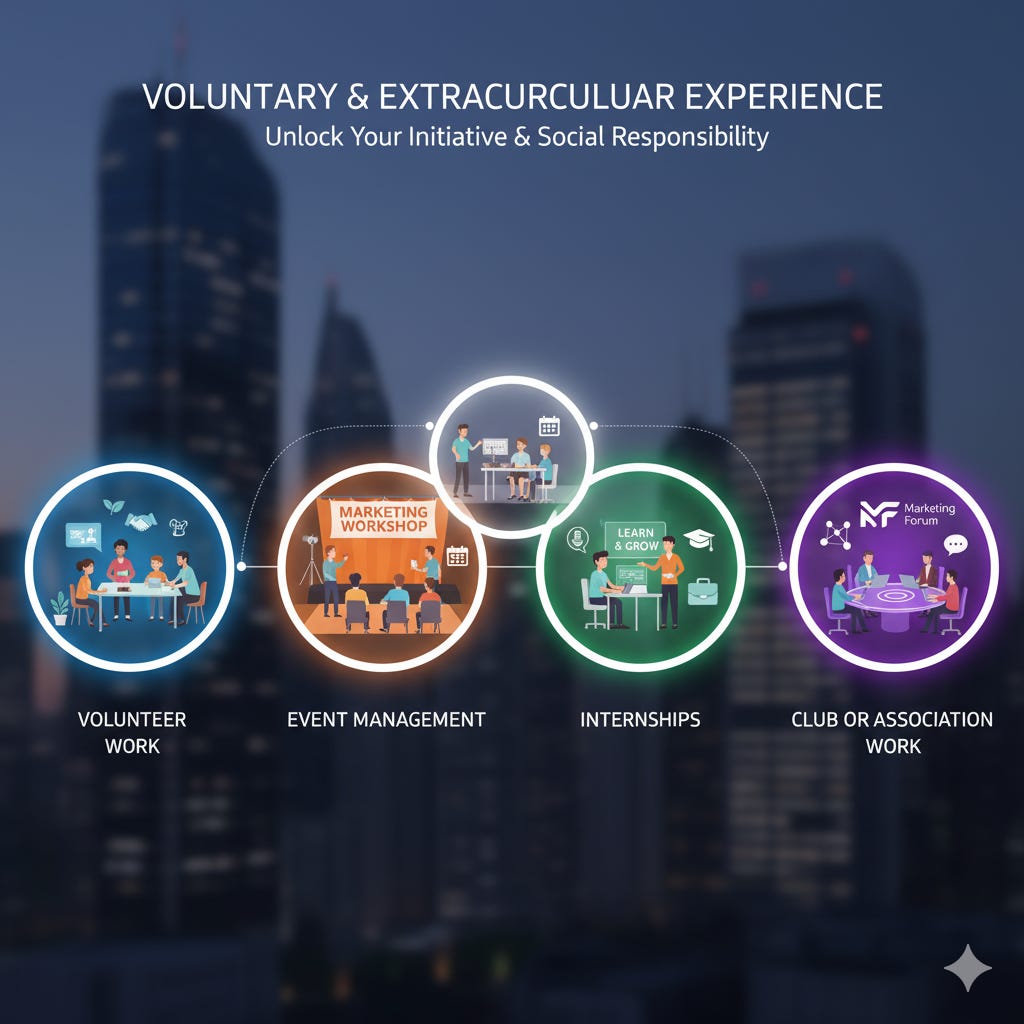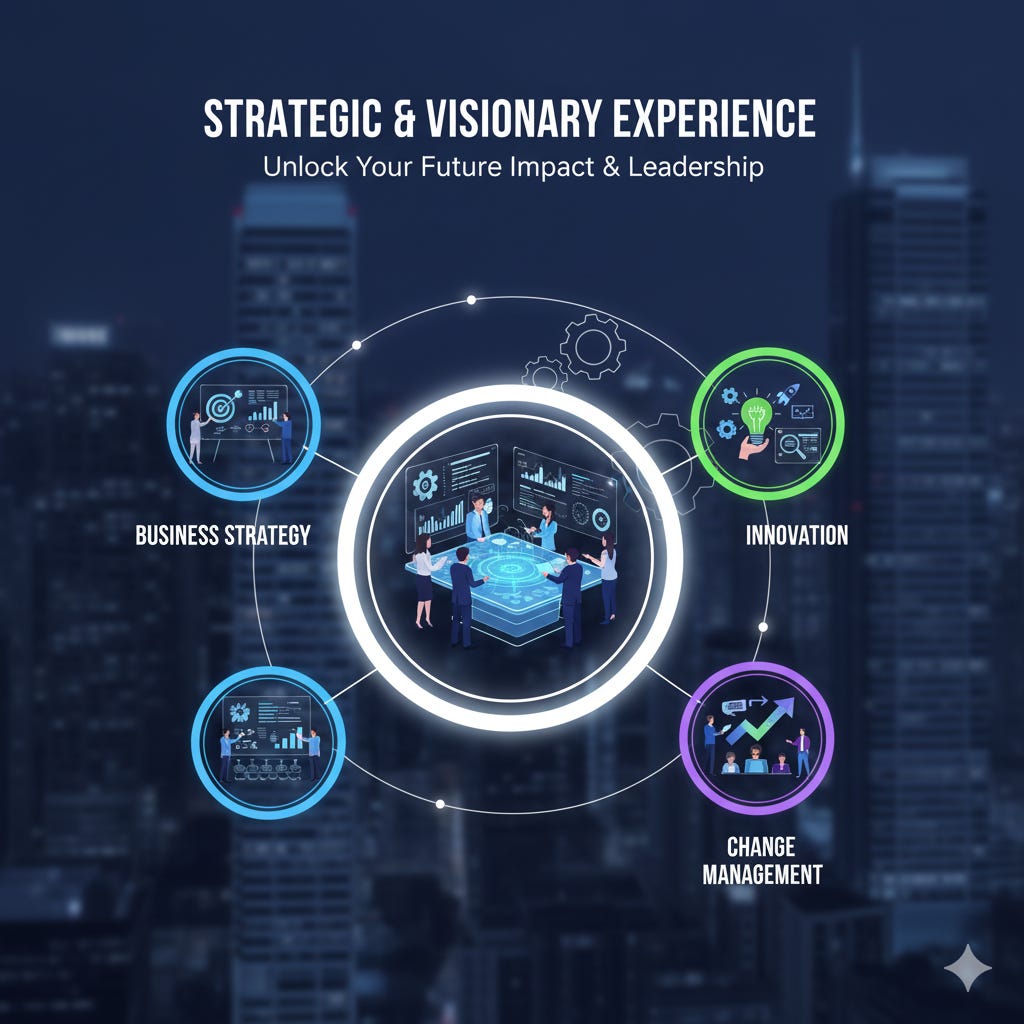7 Powerful Types of Experience That Define Your Career Growth
Your career isn’t defined by years — it’s defined by the experiences that teach, challenge, and transform you.
In today’s world, experience is one of the most valuable assets a professional can carry. But when we talk about “experience,” it doesn’t just mean how many years someone has worked. Experience has many forms - it could come from education, skills, projects, leadership, or even life itself.
Every individual builds a unique combination of experiences that shape their career journey. Let’s explore the different types of experience a professional may have and how each contributes to personal and professional growth.
1. Knowledge-Based Experience
These experiences are built through learning, education, and understanding.
They form the foundation of every career.
Types:
Academic Experience:
Gained through formal education like school, college, or university. It builds theoretical understanding and discipline.
Example: A B.Com or MBA graduate understands business principles before entering the corporate world.*
Certifications & Training Experience:
Specialized programs that provide targeted learning.
Example: Completing a “Google Ads Certification” or “SEO Course” gives you recognized expertise.*
Self-Learning Experience:
When you learn through YouTube, online courses, books, or self-practice.
Example: A freelancer learning web design through YouTube tutorials.
Research Experience:
Involvement in studies, experiments, or projects that expand your analytical and logical skills.
Example: Conducting research on consumer behavior for a marketing project.
Insight:
Knowledge-based experience gives you clarity and confidence. It prepares you mentally for the challenges of real-world work.
2. Professional Experience
This is what most people refer to when they say “work experience.”
It’s the practical exposure gained by performing tasks, handling responsibilities, and achieving results.
Types:
Industry Experience:
Years spent in a specific field — IT, Digital Marketing, Healthcare, etc.
Example: 8 years in digital marketing teach you trends, tools, and client management.
Job Role Experience:
Experience linked to a specific role or title — like SEO Analyst, HR Executive, or Project Manager.
Example: Being an “SEO Trainer” for 3 years builds expertise in teaching and guiding others.
Functional Experience:
Experience in specific business functions — Sales, HR, Finance, Marketing.
Example: Working in sales builds negotiation and customer communication skills.
Leadership Experience:
Handling teams, mentoring members, or making important decisions.
Example: Leading a team of 10 digital marketers for a campaign.
Project Experience:
Every project adds to your professional growth. It teaches you planning, execution, and reporting.
Example: Running a Google Ads campaign for a client from start to finish.
Client/Customer Experience:
Interacting with clients teaches empathy, problem-solving, and relationship management.
Example: Managing SEO clients at White Globe Web gives real-world insights.
Entrepreneurial/Freelance Experience:
When you manage your own work or business, from strategy to execution.
Example: Running your own digital agency or freelancing full-time.
Insight:
Professional experience shows how well you apply your knowledge and handle real business challenges.
3. Skill-Based Experience
Skill-based experience is about hands-on ability.
It’s what makes you effective at your work — not just knowledgeable, but capable.
Types:
Technical Skills:
Practical use of tools, software, or technologies.
Example: Using Google Analytics, Canva, or WordPress effectively.
Creative Skills:
Designing, writing, ideation, or storytelling.
Example: Creating ad creatives or writing blog content.
Analytical Skills:
Ability to interpret data and make informed decisions.
Example: Analyzing campaign performance and optimizing ads.
Communication Skills:
Clear expression through writing, speaking, or presentations.
Example: Conducting a client meeting or pitching an idea.
Problem-Solving Skills:
Finding smart solutions during uncertainty or crisis.
Example: Fixing a sudden drop in website traffic.
Insight:
Skill-based experience turns you from a learner into a doer. It’s the foundation of job performance.
4. Exposure-Based Experience
This experience defines how diverse or broad your professional journey is.
Types:
Global Exposure:
Working with international clients or teams gives cultural understanding and professionalism.
Example: Managing Google Ads for clients from the U.S. and Europe.
Cross-Functional Exposure:
Collaborating across departments — marketing, design, and sales.
Example: Coordinating between the creative and performance teams.
Cultural Exposure:
Learning to adapt to different work cultures or languages.
Example: Working with clients from Japan vs. India requires cultural sensitivity.
Remote Work Experience:
Managing virtual teams and communication tools.
Example: Conducting meetings via Zoom, managing projects online.
Insight:
Exposure-based experience builds adaptability and global awareness.
5. Personal Development Experience
Not all experiences come from offices — some come from life and reflection.
Types:
Life & Age Experience:
Wisdom and maturity that come with time.
Example: A digital marketing professional in their 40s may handle stress better than a fresher.
Social Experience:
Interaction with people, networking, and building relationships.
Example: Attending seminars, workshops, and events.
Failure & Learning Experience:
Every failure teaches valuable lessons.
Example: Losing a client due to miscommunication teaches humility and clarity.
Mentorship Experience:
Learning from mentors or guiding others.
Example: Teaching digital marketing to students helps refine your own understanding.
Insight:
Personal experience develops emotional intelligence, patience, and resilience.
6. Voluntary & Extracurricular Experience
Sometimes, unpaid experiences create the strongest impact.
Types:
Volunteer Work:
Serving NGOs or community causes builds leadership and empathy.
Example: Teaching digital literacy to underprivileged students.
Event Management:
Organizing seminars or meetups improves planning and teamwork.
Example: Hosting a marketing workshop.
Internships:
Early exposure to professional life.
Example: A college intern learning digital marketing basics.
Club or Association Work:
Being part of professional groups or student clubs.
Example: Active participation in marketing forums.
Insight:
Voluntary experience enhances your character, initiative, and social responsibility.
7. Strategic & Visionary Experience
At advanced stages, professionals gain experience in strategy, innovation, and long-term thinking.
Types:
Business Strategy Experience:
Planning goals, managing budgets, and driving performance.
Example: Setting a quarterly marketing strategy.
Innovation Experience:
Introducing new tools, systems, or creative ideas.
Example: Automating client reporting using AI tools.
Change Management Experience:
Handling transformations or scaling processes.
Example: Transitioning a company from traditional to digital marketing.
Insight:
Strategic experience separates leaders from executors. It’s about thinking ahead and creating impact.
Experience is not just about the number of years — it’s about the variety of situations, challenges, and learnings one gathers along the way.
Whether it’s through education, projects, leadership, or personal growth, each form of experience shapes who you become as a professional. The more you diversify your experiences, the stronger and more adaptable you become in today’s ever-changing professional world.
Every professional carries a unique mix of:
· Knowledge-based learning
· Hands-on skills
· Practical challenges
· Personal evolution
The more diverse your experiences, the stronger your ability to handle new situations and lead with confidence.
So, instead of asking “How many years of experience do you have?”, start asking —
“What kind of experiences have shaped who you are today?”


